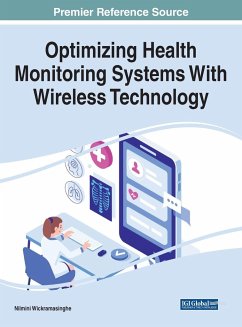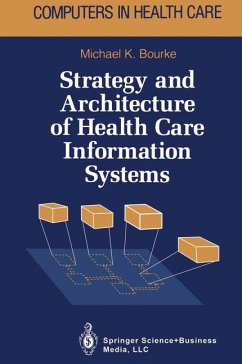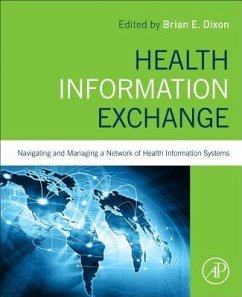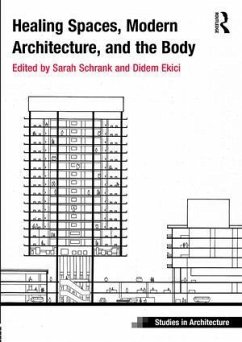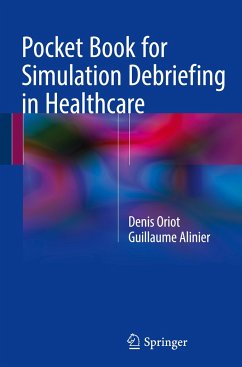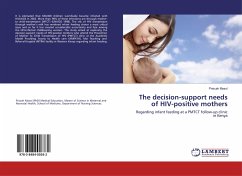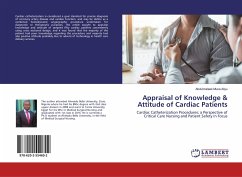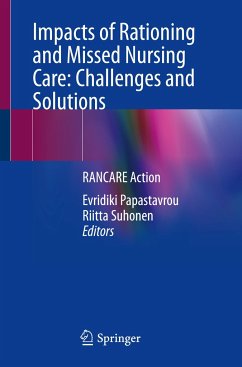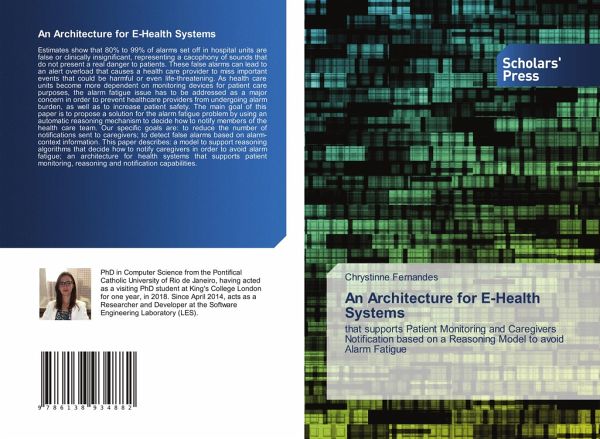
An Architecture for E-Health Systems
that supports Patient Monitoring and Caregivers Notification based on a Reasoning Model to avoid Alarm Fatigue
Versandkostenfrei!
Versandfertig in 6-10 Tagen
30,99 €
inkl. MwSt.

PAYBACK Punkte
15 °P sammeln!
Estimates show that 80% to 99% of alarms set off in hospital units are false or clinically insignificant, representing a cacophony of sounds that do not present a real danger to patients. These false alarms can lead to an alert overload that causes a health care provider to miss important events that could be harmful or even life-threatening. As health care units become more dependent on monitoring devices for patient care purposes, the alarm fatigue issue has to be addressed as a major concern in order to prevent healthcare providers from undergoing alarm burden, as well as to increase patien...
Estimates show that 80% to 99% of alarms set off in hospital units are false or clinically insignificant, representing a cacophony of sounds that do not present a real danger to patients. These false alarms can lead to an alert overload that causes a health care provider to miss important events that could be harmful or even life-threatening. As health care units become more dependent on monitoring devices for patient care purposes, the alarm fatigue issue has to be addressed as a major concern in order to prevent healthcare providers from undergoing alarm burden, as well as to increase patient safety. The main goal of this paper is to propose a solution for the alarm fatigue problem by using an automatic reasoning mechanism to decide how to notify members of the health care team. Our specific goals are: to reduce the number of notifications sent to caregivers; to detect false alarms based on alarm-context information. This paper describes: a model to support reasoning algorithmsthat decide how to notify caregivers in order to avoid alarm fatigue; an architecture for health systems that supports patient monitoring, reasoning and notification capabilities.



